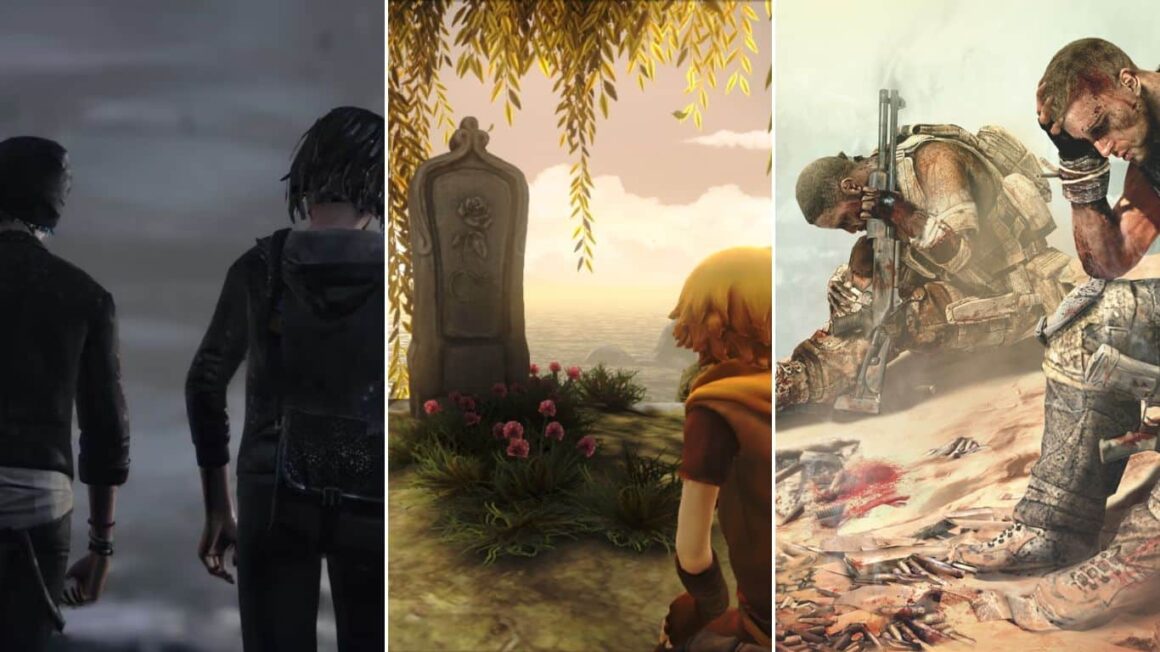- The game explores dark themes while maintaining a balance with light-hearted moments.
- Tragically, the season culminates in Lee’s self-sacrifice to ensure Clementine’s survival.
- This becomes evident in the game’s ending when Kratos reflects on the extent of his actions.
- The game’s ending is somewhat redeemed as Kratos releases hope back into the world.
- Their initial disdain for each other evolves into a father-daughter bond, making the game’s conclusion all the mor…
- As the credits roll, Ellie’s expression betrays the shattered trust between them, leaving players with a poignant …
In the vast expanse of the gaming universe, players are often rewarded with triumphant victories, heroic deeds, and happy endings. However, lurking in the shadows are those unforgettable games that defy convention, embracing the darkness and offering chilling conclusions that leave us questioning our own morality. Welcome, dear readers, to the abyss of gaming – where nightmares become reality and the line between good and evil blurs. In this twisted journey, we’ll explore the 10 darkest endings in video game history, delving deep into the sinister storylines and heart-wrenching finales that still haunt us long after the credits have rolled.
10 Darkest Endings in Video Game History
Life Is Strange

The first game in our list is “Life Is Strange”, which has captivated fans for nearly a decade with its emotional connections and supernatural twists. The game explores dark themes while maintaining a balance with light-hearted moments. The ending, however, is particularly dark as protagonist Max Caulfield must choose between sacrificing her best friend Chloe or allowing a devastating storm to destroy Arcadia Bay. The heart-wrenching decision forces players to either let Chloe die believing no one cares, undoing the best week of her life, or to save Chloe at the cost of hundreds of lives. This cruel choice leaves players grappling with the consequences of their actions in a truly memorable and dark gaming experience.
A Plague Tale: Requiem
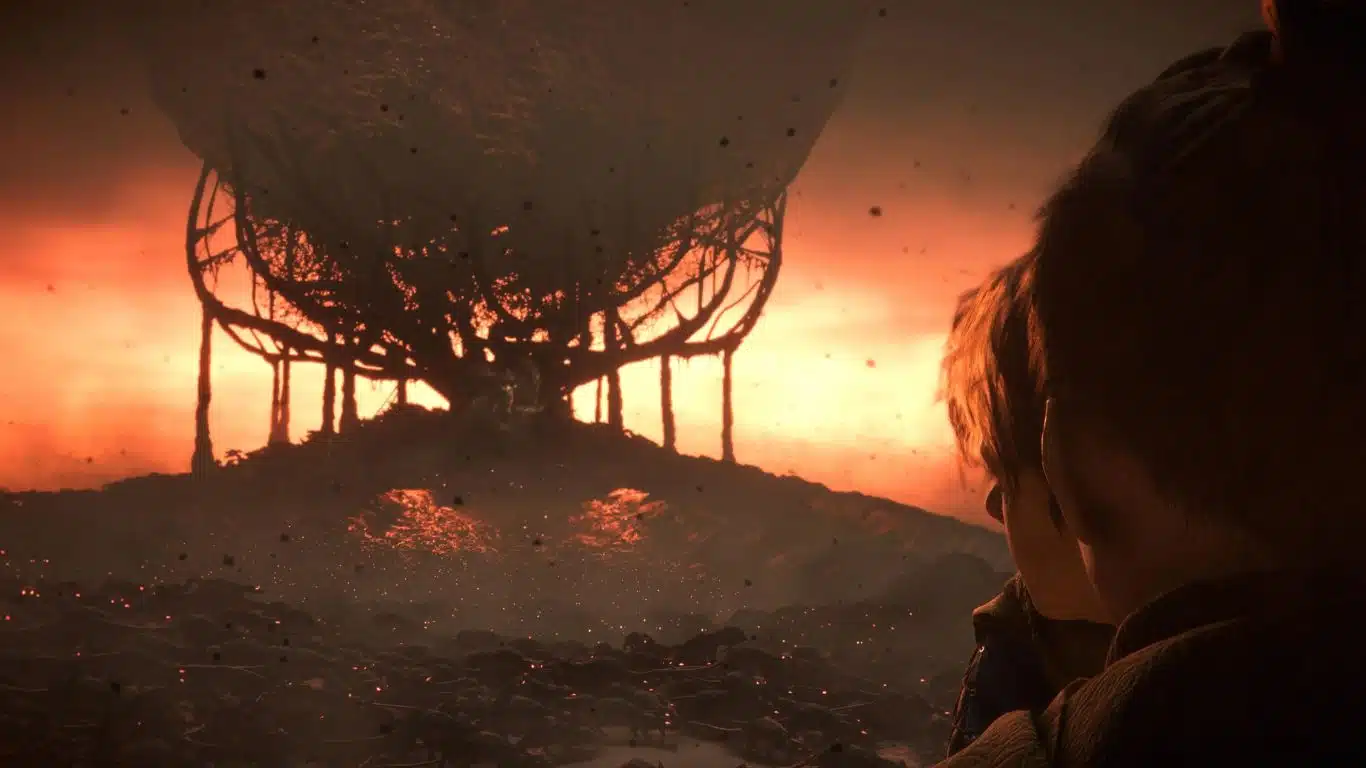
In A Plague Tale: Requiem, siblings Amicia and Hugo De Rune are former heirs to royalty, forced to flee their home due to a devastating plague of rats. Throughout the two games, they face unimaginable horrors and the loss of their loved ones. Eventually, they discover that Hugo has a unique connection to the rats, allowing him to control them, due to the Prima Macula – a corruption in his blood passed down through generations. Despite their desperate search for a cure, Amicia and Hugo realize the only way to end the plague and save countless lives is for Hugo to die. With a heavy heart, Amicia makes the ultimate sacrifice, taking her brother’s life to put an end to the terror.
Undertale
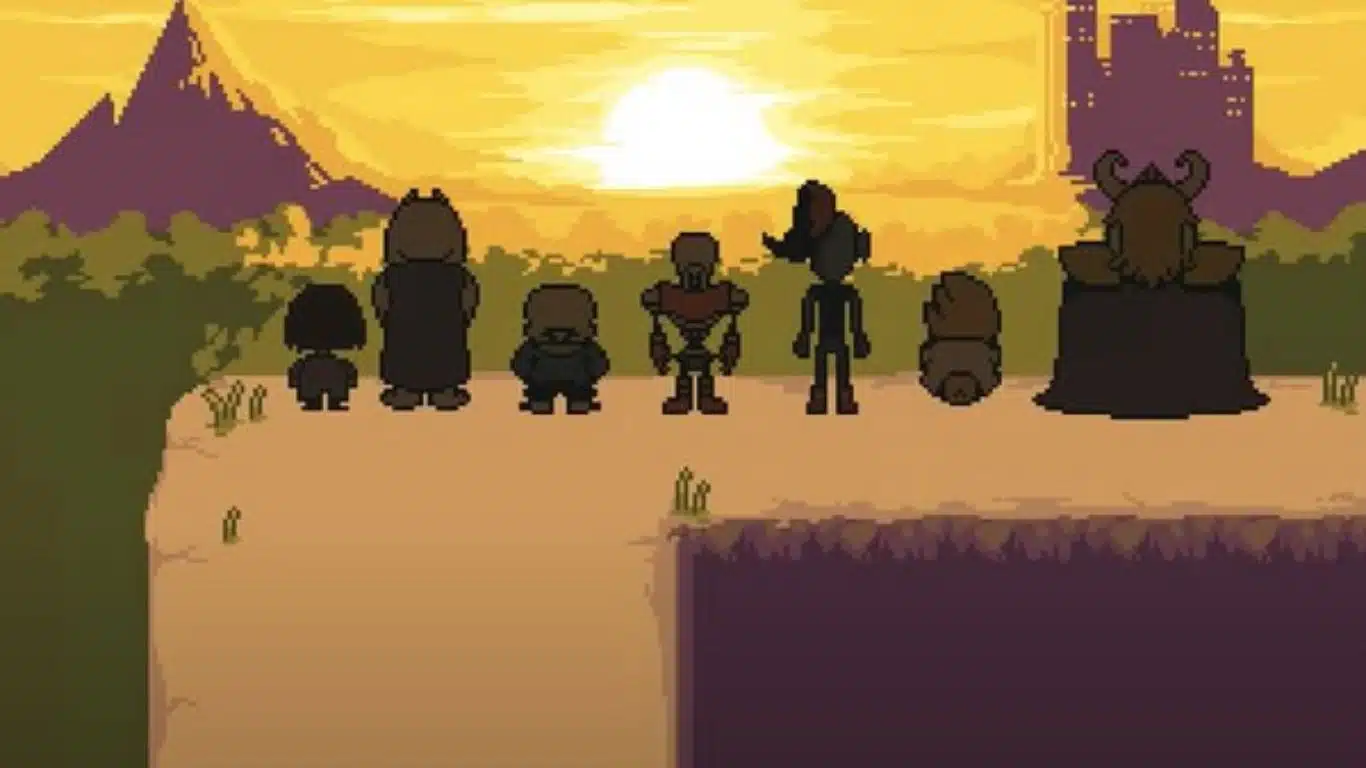
It is a highly acclaimed game from the 2010s, is celebrated for its unique storytelling that offers three narrative routes. The Pacifist Route rewards players with a cheerful conclusion, while the Neutral Route leads to a bittersweet ending based on their specific choices. However, the Genocide Route is notorious for its dark finale. In this path, Frisk eliminates all creatures in the Underworld, including Sans and Flowey. The Fallen Child then confronts Frisk and eradicates the world using their immense power. Undertale’s Genocide ending not only chastises the player but also leaves a permanent mark on their save file, ensuring future endings result in even grimmer outcomes.
Elden Ring
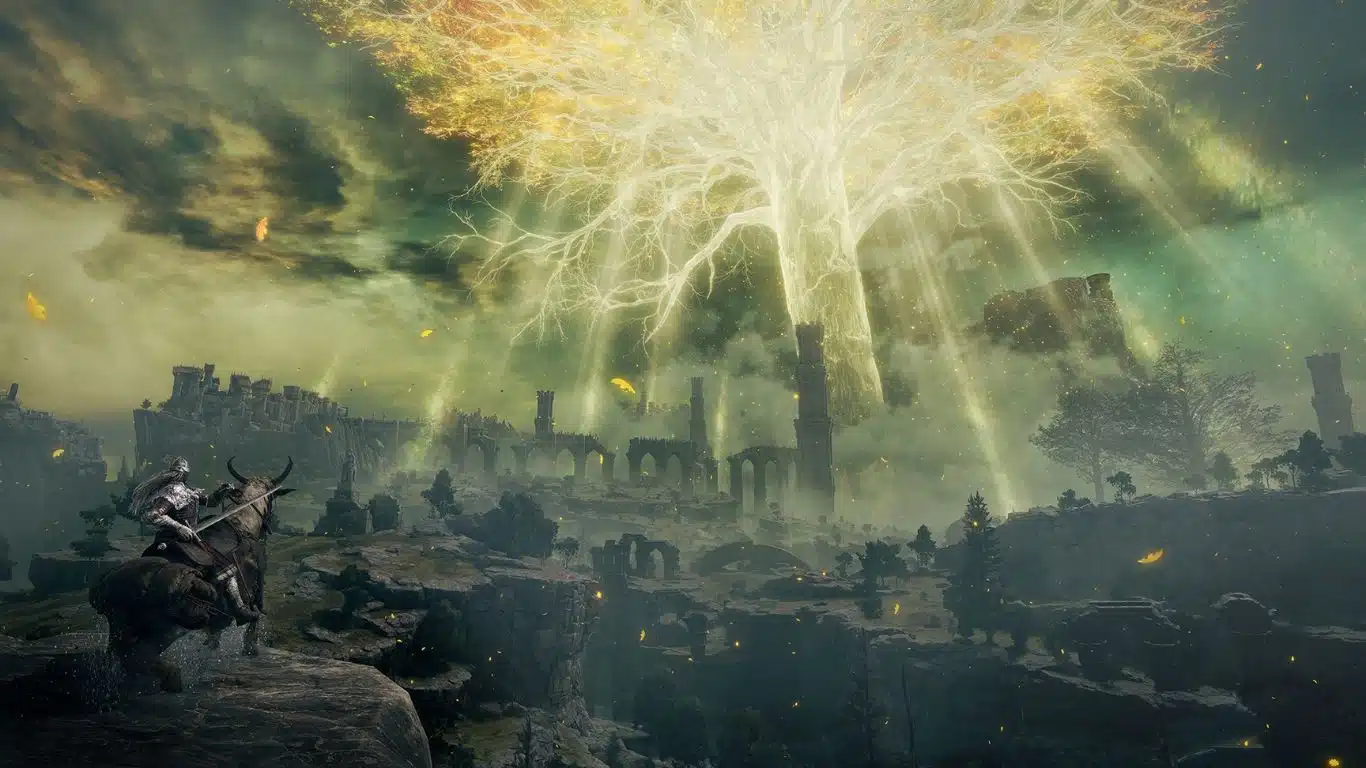
Elden Ring’s various endings are shrouded in ambiguity, with no definitive best outcome. Two particularly dark endings stand out: The Lord of Frenzied Flame and the Blessing of Despair. The former sees the Frenzied Flame scorching the Lands Between, causing widespread devastation. The Blessing of Despair, however, is far more sinister. By utilizing the Dung Eater’s Mending Rune of the Fell Curse, the Tarnished inflicts unparalleled misery upon the Lands Between. This condemns all living creatures to a life of anguish, followed by torment in the afterlife. No other Elden Ring ending subjects the inhabitants to such a harrowing, eternal fate without any justifiable reason.
Brothers: A Tale of Two Sons
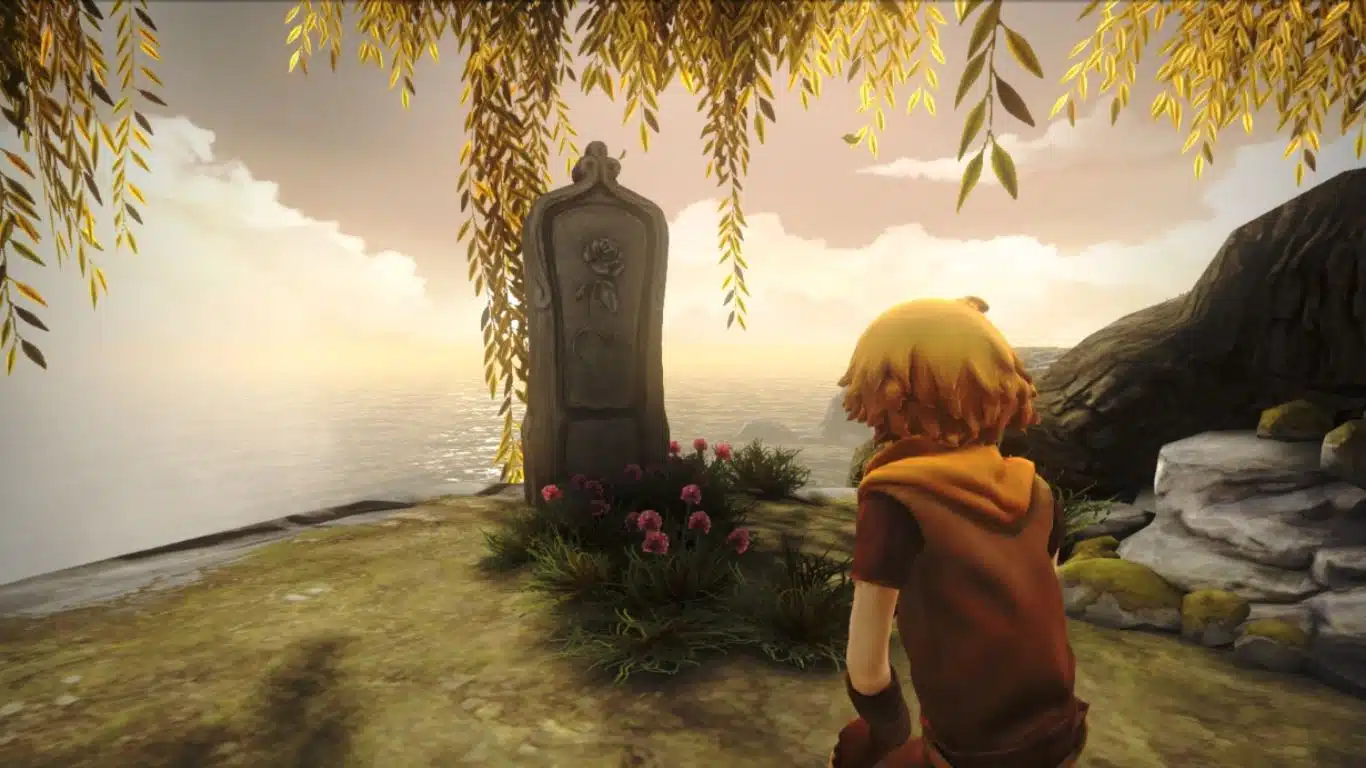
Renowned game designer Josef Fares has cemented his status as a creative force in the gaming world with acclaimed hits like A Way Out and It Takes Two, the latter winning Game of the Year at The Game Awards. His first foray into co-op puzzle adventure games was Brothers: A Tale of Two Sons, a heavily story-driven and emotional experience. The game follows two brothers on a quest to save their ailing father by obtaining the all-curing water from the Tree of Life. As the journey nears its end, tragedy strikes when the brothers face their malevolent mother, resulting in one brother being mortally wounded. Although they secure the cure and heal their father, the surviving brother and father mourn the heartbreaking loss of the other brother, culminating in a poignant and somber ending.
Spec Ops: The Line
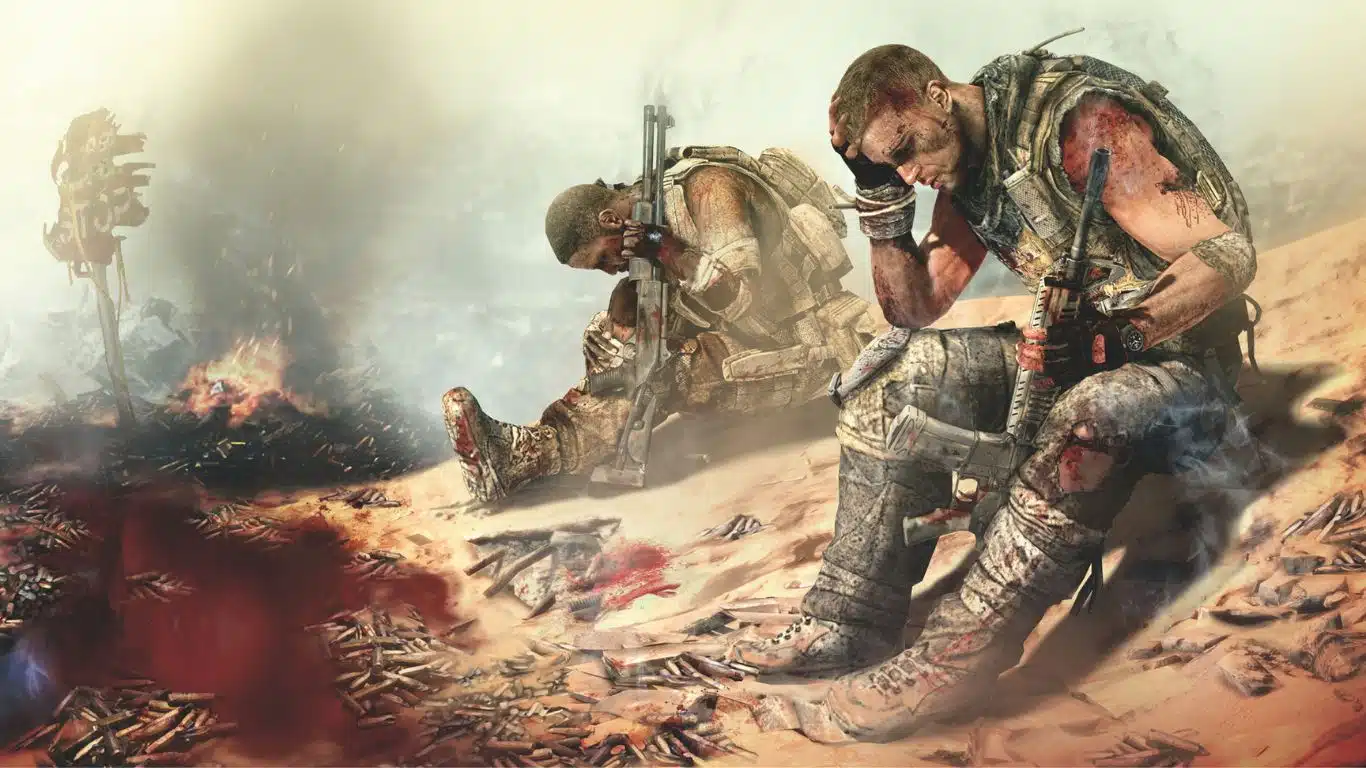
In Spec Ops: The Line, a game inspired by the dark novella Heart of Darkness, the narrative deconstructs modern first-person shooter storytelling and offers no uplifting moments. The protagonist, Martin Walker, faces a series of harrowing endings that range from death by suicide, allied fire, or even becoming a villain like Colonel Konrad. Throughout the game, Walker’s actions lead to the demise of numerous Dubai residents, and the city suffers from months of escalating deprivation, sandstorms, and warfare. With bleak prospects for evacuation, the game’s story is grim on both a personal and a larger scale, offering no happy resolution for Walker or Dubai.
Metal Gear Solid V: The Phantom Pain

The Metal Gear Solid series is known for exploring the grim realities of war, often ending on a somber note. Metal Gear Solid V: The Phantom Pain takes this a step further with an incredibly dark conclusion. Players witness Venom Snake’s transformation into the notorious Big Boss, as he grapples with the loss of comrades and the bitter revelation of his true identity. As his allies turn against one another, vowing to seek revenge, players are left with a sense of despair. The game’s tragic outcome is compounded by the knowledge that the protagonist’s efforts are ultimately futile, as the Patriots eventually outmaneuver Big Boss to establish the dystopian world depicted in Metal Gear Solid 4: Guns of the Patriots.
The Walking Dead: Season 1

Telltale Games has long been known for delivering powerful narratives and immersive experiences in their titles. The Walking Dead series exemplifies this with its captivating storytelling and emotional depth. In Season 1, players guide Lee, who stumbles upon a young girl named Clementine amid a zombie apocalypse. As he assumes the role of her protector, their bond deepens. Tragically, the season culminates in Lee’s self-sacrifice to ensure Clementine’s survival. This heart-wrenching conclusion stands as one of the most poignant moments in gaming history and ranks among the most devastating losses in Telltale’s repertoire.
God Of War III
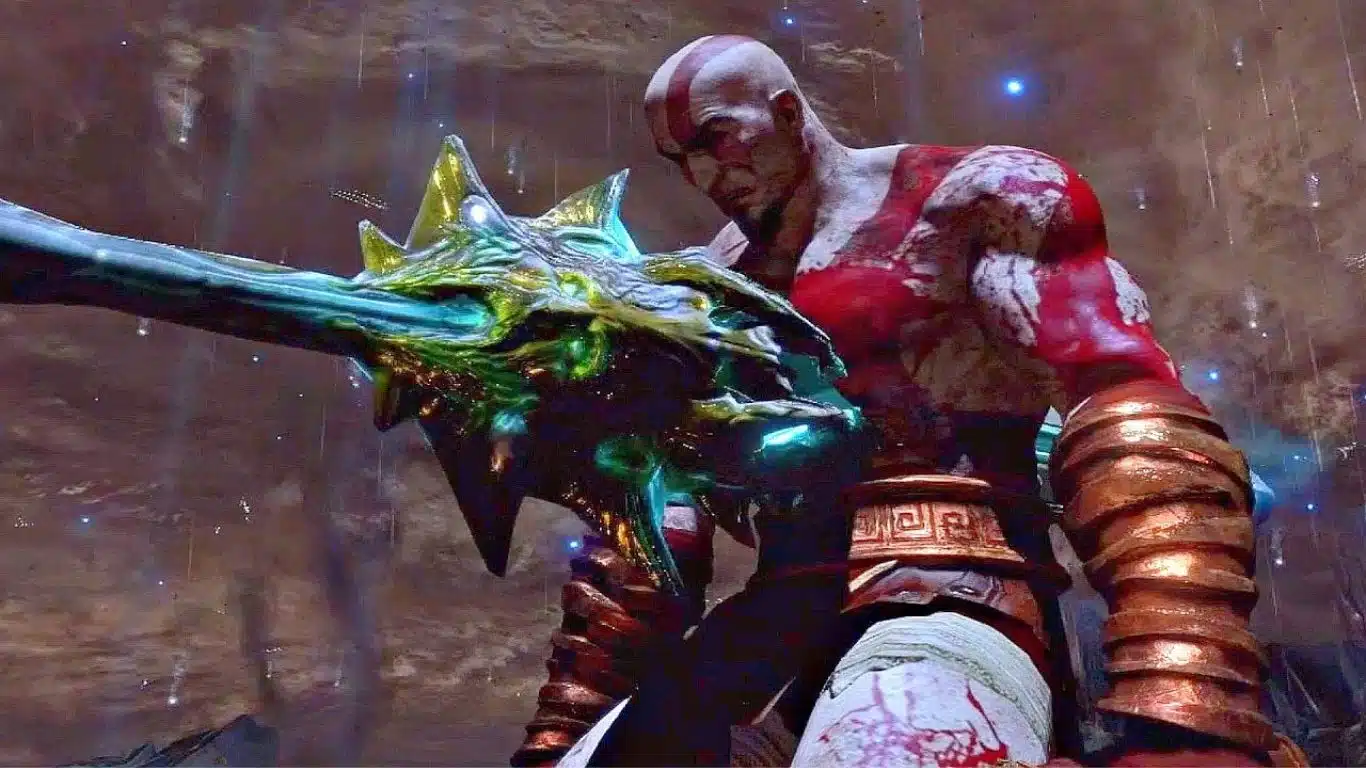
In the game Kratos evolves from an unscrupulous antihero to a full-fledged villain, hell-bent on avenging Zeus. His relentless pursuit of vengeance leads him to cross moral boundaries and disregard consequences. This becomes evident in the game’s ending when Kratos reflects on the extent of his actions. As he stands victorious over Zeus, he surveys a devastated Greece; his annihilation of the Greek pantheon has unleashed catastrophic natural disasters and monstrous creatures. The game’s ending is somewhat redeemed as Kratos releases hope back into the world. However, this act of redemption comes at a great personal cost, as he must nearly mortally wound himself to do so.
The Last Of Us
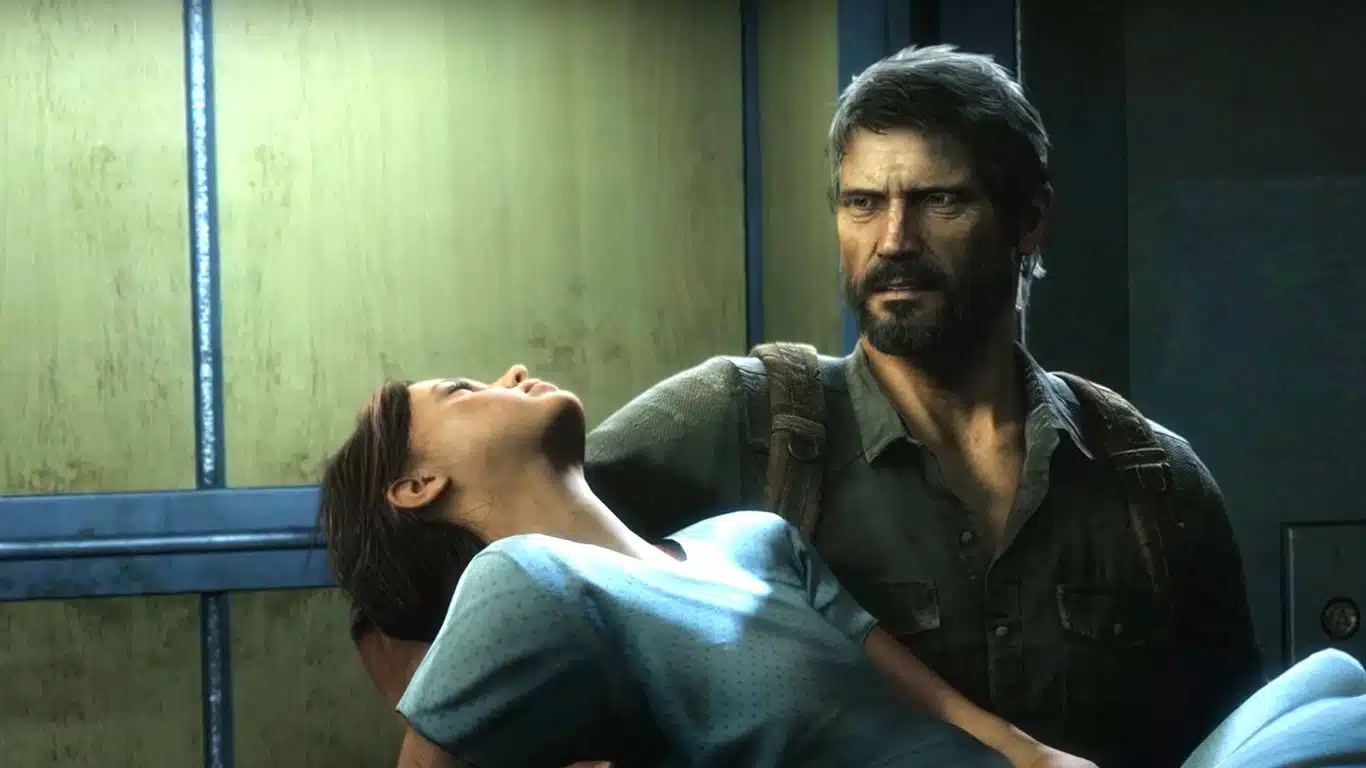
The Last of Us, acclaimed for its emotional depth and exceptional storytelling, follows protagonists Joel and Ellie as they navigate a post-apocalyptic world. Their initial disdain for each other evolves into a father-daughter bond, making the game’s conclusion all the more heartbreaking. Ellie’s blood holds the potential to create a cure for the virus that has decimated cities. However, extracting the cure requires her sacrifice. Overwhelmed by selfish fury, Joel kills those who seek to use Ellie and lies to her about the events. As the credits roll, Ellie’s expression betrays the shattered trust between them, leaving players with a poignant and dark ending.
Also Read: List of games based on Hindu Mythology
